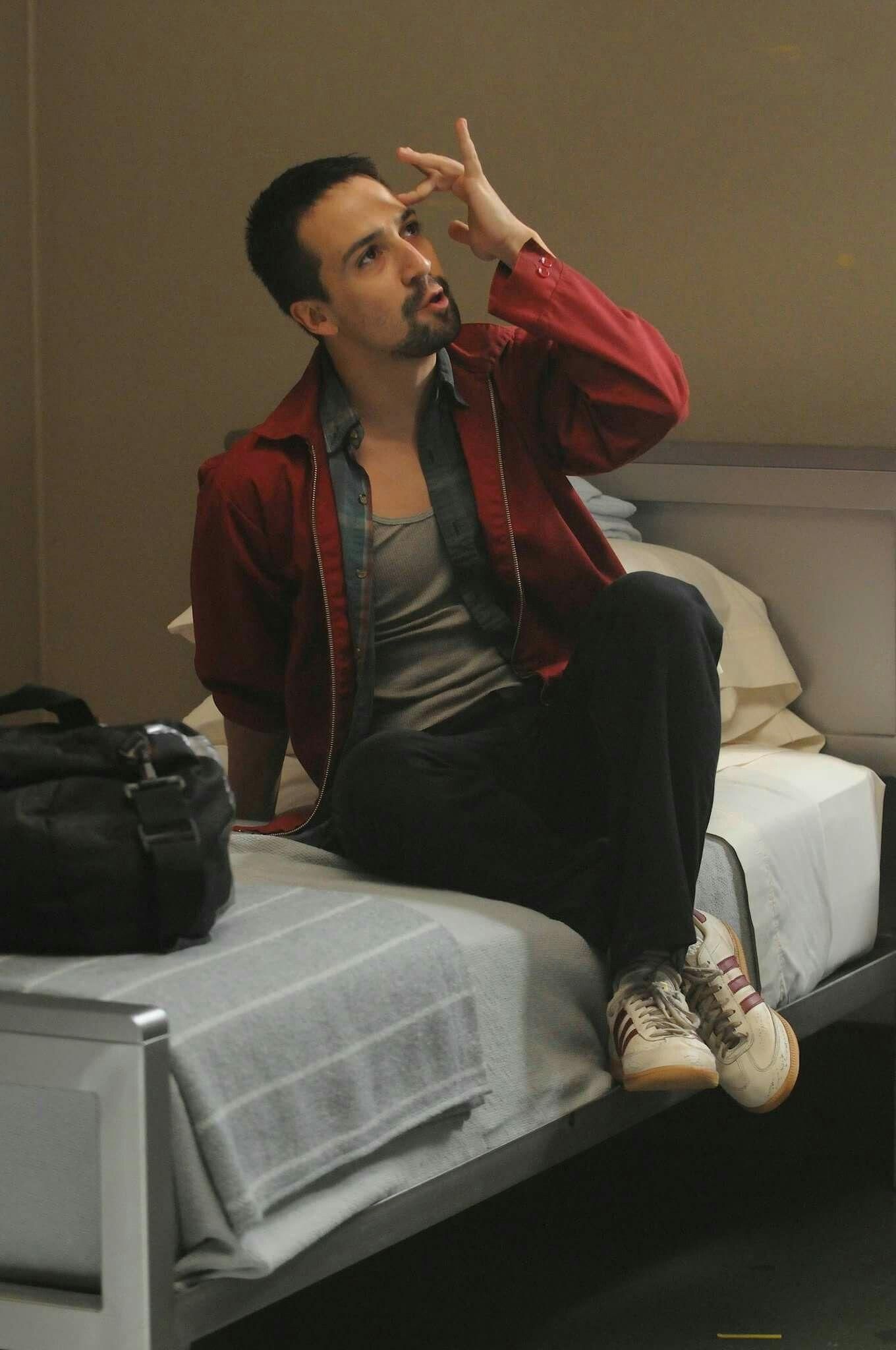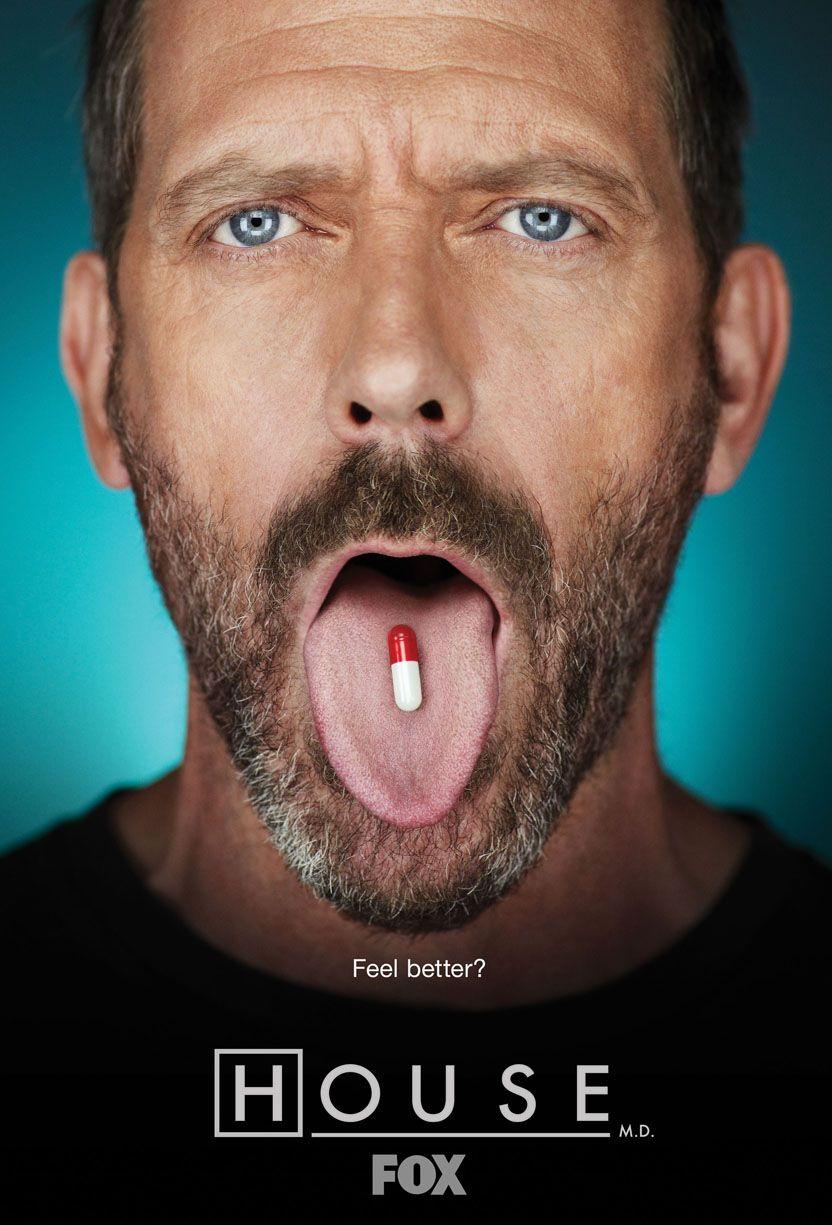Synopsis
Dr. Gregory House, played masterfully by Hugh Laurie, is a notorious medical savant leading a squad of young diagnosticians at the fictional Princeton-Plainsboro Teaching Hospital in New Jersey. Each episode kicks off outside the clinical confines of the hospital, where the audience is shown the sequential events that culminate in the peculiar symptoms undermining a new patient each week. These maladies trigger a whirlwind of deduction as House and his team embark on a diagnostic journey that challenges conventional medical wisdom.
At the center of this cerebral exercise is the Socratic Method and the art of differential diagnosis, with House steering these medical mysteries towards resolution. Driven by his unorthodox approach, House often dismisses the contributions of his team, suspecting overlooked elements lurking behind appearances. As the mystery illness unfolds, the journey is fraught with missteps—patients are diagnostically profiled two or three times, with initial theories often proposing afflictions such as sarcoidosis, leading to treatments causing further health hiccups. Compounding these challenges is the omnipresent theme that a mantra House mutters in skepticism of patient testimonies. These misdirections are frequently entangled with concealed truths—unspoken affairs, hidden disorders, or undisclosed job hazards, adding layers to the convoluted cases that tantalize House's intellect.
In a running subplot, House is reluctantly tethered to his walk-in clinic duties. Here, his unrestrained quirks and eccentric bedside demeanor both confound and captivate patients. Despite seeming aloof, often indulging in his Nintendo Game Boy Advance SP or later iterations like the Nintendo DS and PSP, House delivers spot-on diagnoses with astonishing speed and accuracy, leaving patients both perplexed and impressed. An interesting twist is how these seemingly trivial clinic conundrums often provide House with breakthrough insights necessary to unravel the main episode's medical knot, adding a layer of irony considering his disdain for the clinic's mundanity.
House's brilliance is a double-edged sword, carving out medical truths with unyielding precision while reflecting a complex inner world. His character radiates a compelling blend of acerbic wit and piercing genius, engaging viewers with the unpredictable nature of each medical puzzle. The series is more than just a medical drama; it's an exploration of humanity’s intricate tapestry, colored by deception, vulnerability, and a relentless quest for truth. Each episode invites the audience into a world where medical science and human nature collide, leaving viewers glued to every whip-smart deduction and sardonic remark.
Argument
In the realm of medical dramas, few protagonists captivate as uniquely as Dr. Gregory House, brilliantly portrayed by Hugh Laurie. Herein lies a narrative of unparalleled complexity—a rich tapestry woven with intellectual rigour, human flaws, and the relentless pursuit of truth. Dr. House, at the helm of a deliberately chosen team of young, ambitious diagnosticians, serves as the figurehead of a medical expedition within the fictional precincts of Princeton-Plainsboro Teaching Hospital in New Jersey, where every episode unfolds like a meticulously plotted mystery novel.
Commencing with a cold open, the audience is thrust into poignant vignettes showing the incipient moments of medical anomalies manifesting in patients, each chosen for their baffling, arcane symptoms. Immediately, the viewer is catapulted into a diagnostic duel, guided by, if not entirely obedient to, House's mercurial, Socratic method. This form of dialogue-driven analysis becomes the intellectual keystone of the show as House and his team venture through layers of differential diagnosis.
House's character is the quintessential maverick medical genius—his approach unapologetically dismissive of conventional niceties in favor of unfiltered truth. This intellectual arrogance, coupled with his unflinching skepticism, manifests in the reflexive rejection of his team's initial diagnoses. Often, these premature conclusions spiral into a series of misdiagnoses, where common yet erroneous ailments like sarcoidosis are treated, usually exacerbating the patient's condition. House's cynical axiom, echoes throughout the series as the emotional cornerstone upon which his decisions predicate. This presumption, founded on the deceit of patients—whether it pertains to concealed affairs, occupational hazards, or fabricated symptoms—often leads to unexpected turns in the narrative, challenging both the team and the audience to reconsider their own biases.
Despite his position and prowess, House must contend with the obligations of mundane clinic duties. This recurring subplot furnishes a platform for nuanced humor and character exploration. Intriguingly, these seemingly trivial clinic encounters frequently serve as an intellectual crucible where House's eccentric bedside manner and propensity for hyper-focused observation yield rapid-fire diagnoses. Such encounters provide both comic relief and narrative utility, as insights gleaned during these interludes often precipitate solutions to the episode’s central medical enigma. This irony—that House begrudgingly disdains the clinic yet consistently derives crucial epiphanies there—underscores the intricate interweaving of the show's thematic elements.
Dr. House's propensity for engaging in electronic distractions—predominantly playing on his Game Boy Advance SP, later evolving to a Nintendo DS, and subsequently a PSP—during consultations is a testament to his complex persona. Such behaviors, initially perceived as aloofness, reveal layers of cognitive processing that belies deeper sensitivity. In one memorable episode, House manages to diagnose multiple ailments with lightning precision after seemingly ignoring patients, demonstrating that beneath his acerbic exterior lies a man profoundly attuned to medical intricacies.
Beneath the veneer of sarcasm, House's character is emblematic of the eternal battle between empirical science and the human condition's inherent unpredictability. His acerbic wit and staunch realism penetrate far beyond Hospital's sterile confines, inviting audiences to ponder moral imperatives and the gray areas between right and justified. Dr. House is a deeply flawed protagonist, wrestling with personal demons, yet his brilliance in both intuition and intellect suggests a redemptive quality that is at once compelling and humanizing.
In summary, "House" asserts itself as a groundbreaking exploration of the subtleties in human nature, the intricacies of medical science, and the existential patience required within both domains. Through its shrewd narrative structure and character-driven storytelling, the series challenges viewers to examine their preconceptions about truth, trust, and the paradigms of modern medicine. In Dr. Gregory House, audiences find an unforgettable icon—a testament to the intricacy of human intellect and the tenacity of the human spirit in the face of adversity and doubt.
Cast

Hugh Laurie
Dr. Gregory House

Omar Epps
Dr. Eric Foreman

Robert Sean Leonard
Dr. James Wilson

Jesse Spencer
Dr. Robert Chase

Lisa Edelstein
Dr. Lisa Cuddy

Bobbin Bergstrom
Nurse

Jennifer Morrison
Dr. Allison Cameron

Peter Jacobson
Dr. Chris Taub

Olivia Wilde
Thirteen

Kal Penn
Dr. Lawrence Kutner

Charlyne Yi
Dr. Chi Park

Odette Annable
Dr. Jessica Adams

Anne Dudek
Dr. Amber Volakis

Jennifer Crystal Foley
Rachel Taub

Amber Tamblyn
Martha M. Masters

Liz Benoit
Nurse Anne

Stephanie Venditto
Nurse Brenda Previn

Sela Ward
Stacy Warner
Multimedia












